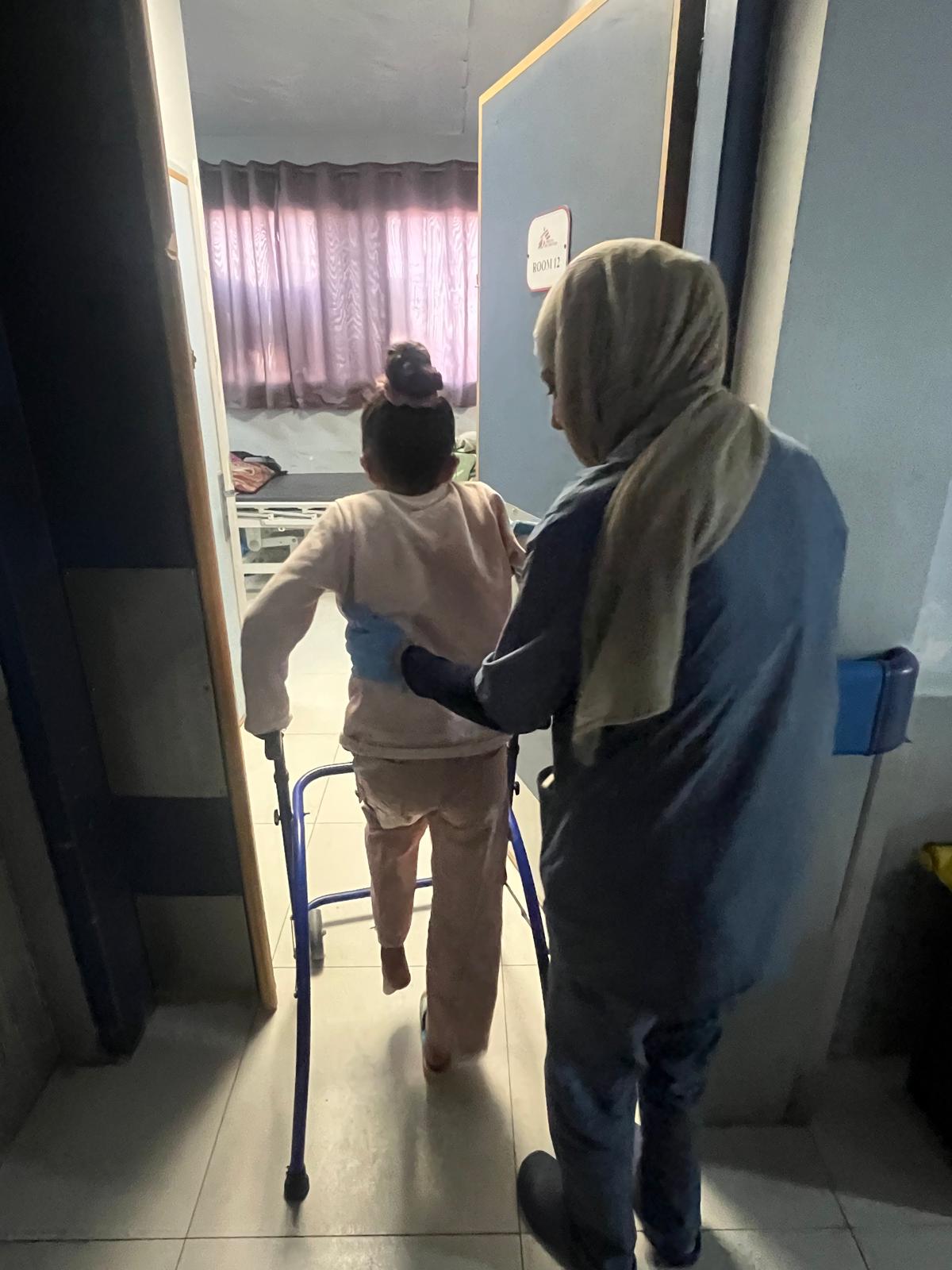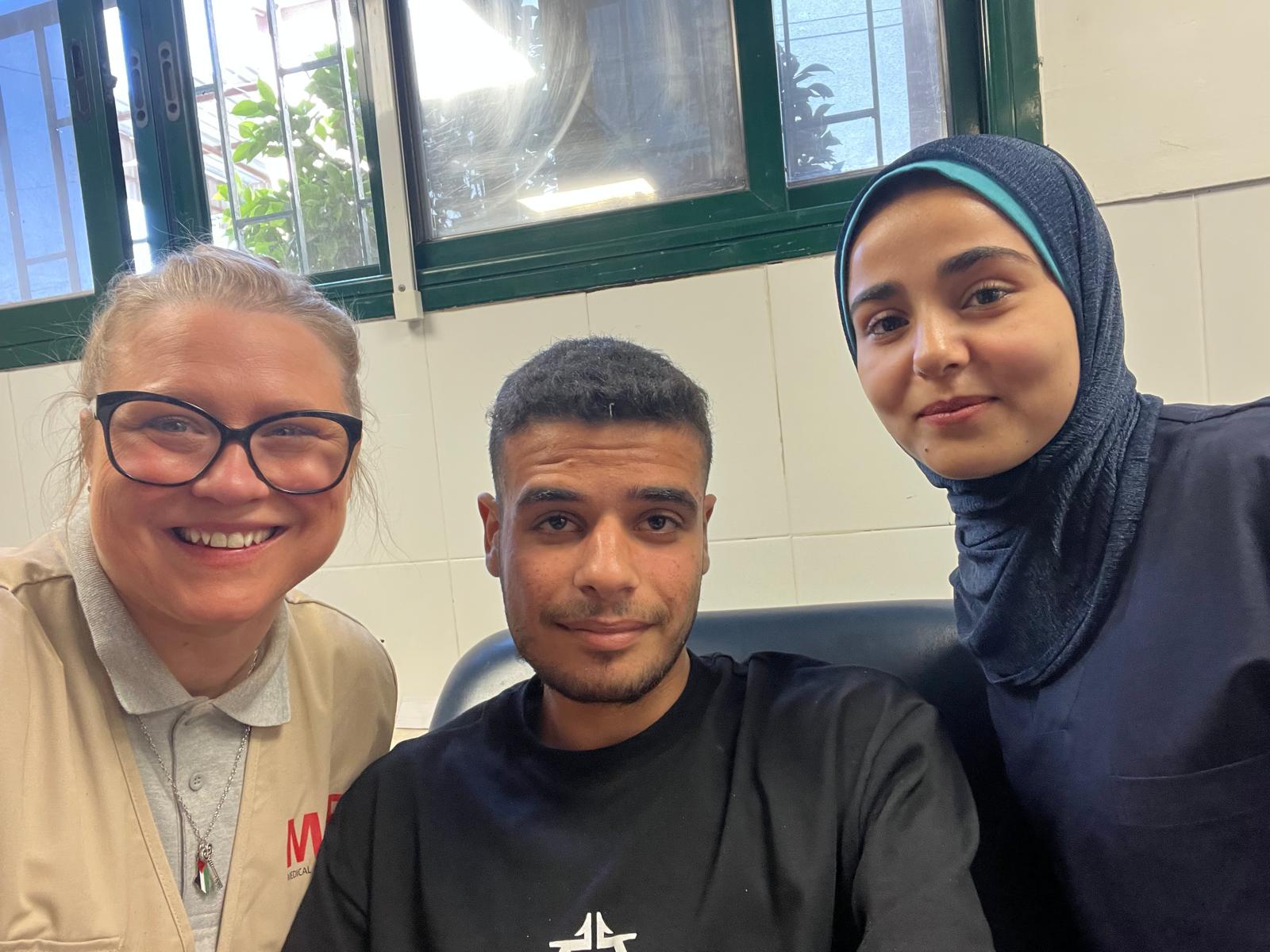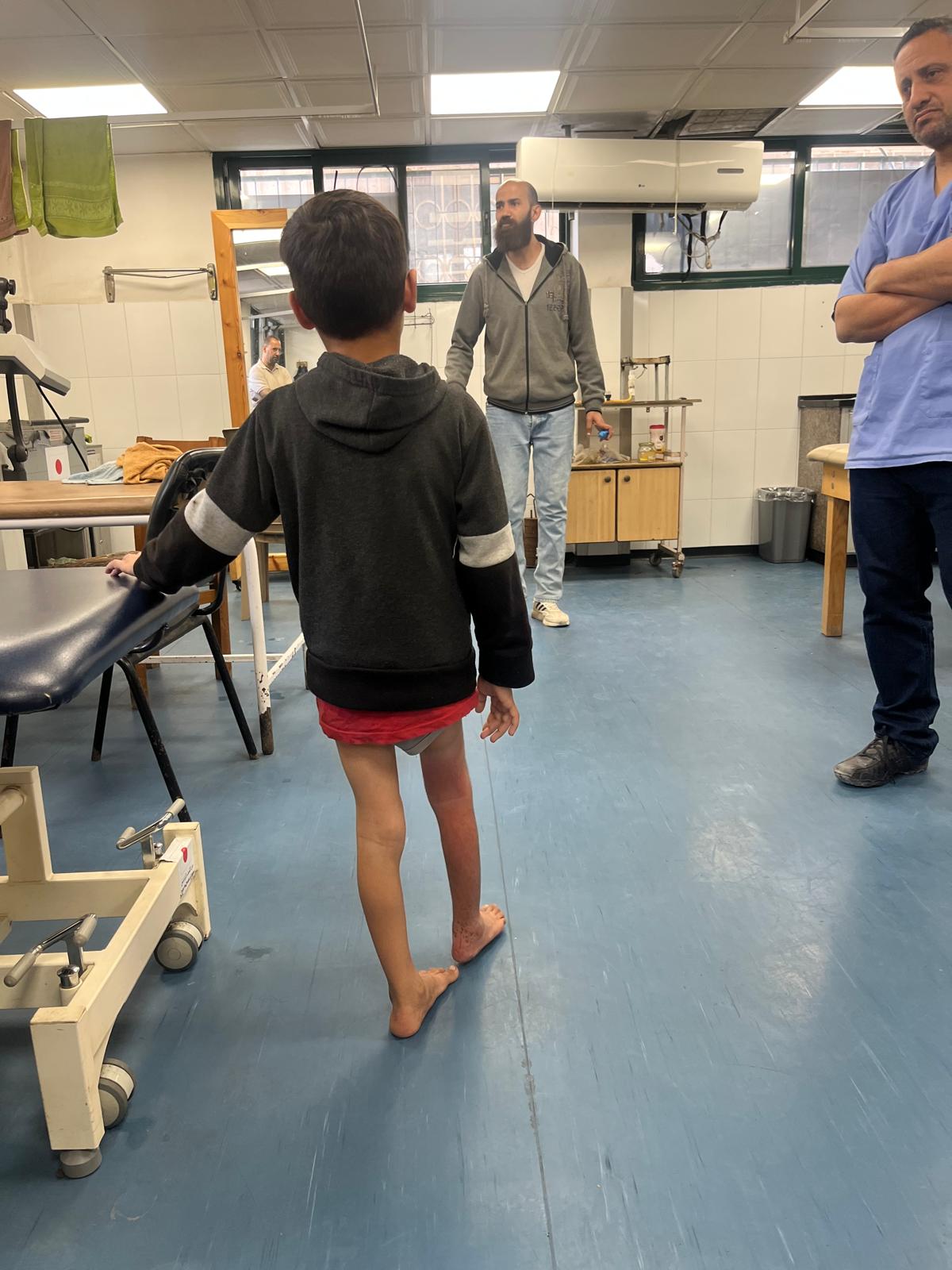‘Nothing prepares you for the devastation’: Physiotherapist recalls Gaza horrors
Rachael Moses, from Newcastle, has returned from Gaza after spending a month volunteering at one of the region’s last functioning hospitals.

A British physiotherapist who has recently returned from Gaza has described the unimaginable horror she witnessed while volunteering in a local hospital.
Rachael Moses, from Newcastle, has been visiting the Gaza strip as part of a rehabilitation programme working with local physiotherapists since 2017.
The 46-year-old health professional said nothing could have prepared her for the level of devastation she witnessed during her recent visit.
Ms Moses who spent a month at Nasser hospital, one of the last functioning hospitals left in Khan Younis, southern Gaza, described daily bombardments and seeing parents carrying their dead children in their arms.

“I kind of thought I was prepared as best I could for what I was about to see in Gaza but I think nothing can really prepare you for the level of devastation,” Ms Moses told the PA news agency.
Ms Moses, who travelled to the war zone with a group of British Medical Aid for Palestinians volunteers, described how her bed would shake at night from the drone strikes nearby.
“We entered Gaza in a kind of UN armoured vehicle and we were also in body armour,” she said.
“When we were there, there were bombardments continuously through the night.
“If the drones didn’t keep you up, your bed would shake.”
Ms Moses, who spent the month assisting local doctors and physiotherapists, said the hospital was bombarded twice by Israeli airstrikes while she was there.
“They hit the second floor and killed a ministry of health official,” she said.
“They also destroyed the men’s surgical ward of the hospital and they also killed a journalist at the main entrance at the hospital, where the press tents were.”

As one of the last main hospitals in southern Gaza, Nasser hospital is providing care for people with severe burns and trauma injuries, newborn babies, and pregnant women.
The hospital is facing several challenges with supplies, including hygiene items, medication and surgical items.
Ms Moses described how the hospital had a triage tent outside to help support the wounded as quickly as possible.
“They had a big triage tent outside, so people who got into the hospital had, as best we could guess, a chance of survival,” she said.

“But many would die in the triage area and go straight to the mortuary.”
She described seeing parents every morning carrying the bodies of babies wrapped in cloth to the mortuary following the bombings from the night before.
“People are forbidden to drive cars or vehicles or anything that’s not co-ordinated,” she said.
“So, they have to walk on foot carrying their loved ones to the morgue or use donkey carts to bring them in.”
Ms Moses who was assisting local physiotherapists with their rehabilitation programme said alongside the devastation of so many deceased, there is another layer of trauma for survivors left with disfigurements.
“They’re (the local medics) really trying to give hope to these people, often children who have devastating and life-changing injuries, to kind of try and get them the best function they can,” she said.
“There’s another layer of devastation as those people that don’t die are left with such horrific disfigurement, injuries.”
Ms Moses, who hopes to return to Gaza again in a few months, said despite the risk of being in a warzone she said leaving is so much harder than going there.
“You’re going back to your very privileged life, your very safe life,” she said.
“These people have nothing, they don’t have clean water, they don’t have toilets, they don’t have enough food.”
Alongside the strikes, malnutrition and hunger are becoming prevalent in Gaza.
Israel has cut off Gaza from all imports, including food and medicine, since the beginning of March, leading to what is believed to be the worst humanitarian crisis in nearly 19 months of war with Hamas.
Israel says the blockade is an attempt to pressure the Palestinian militant group to release hostages it took during the October 7 2023 attack that triggered the conflict.
Hamas-led militants attacked southern Israel that day, killing some 1,200 people, mostly civilians, and abducting 251. Hamas is still holding 59 hostages, 24 of whom are believed to be alive.
In response, Israel launched an offensive that has killed more than 52,000 Palestinians, mostly women and children, according to Gaza’s health ministry, which does not distinguish between fighters and civilians.





